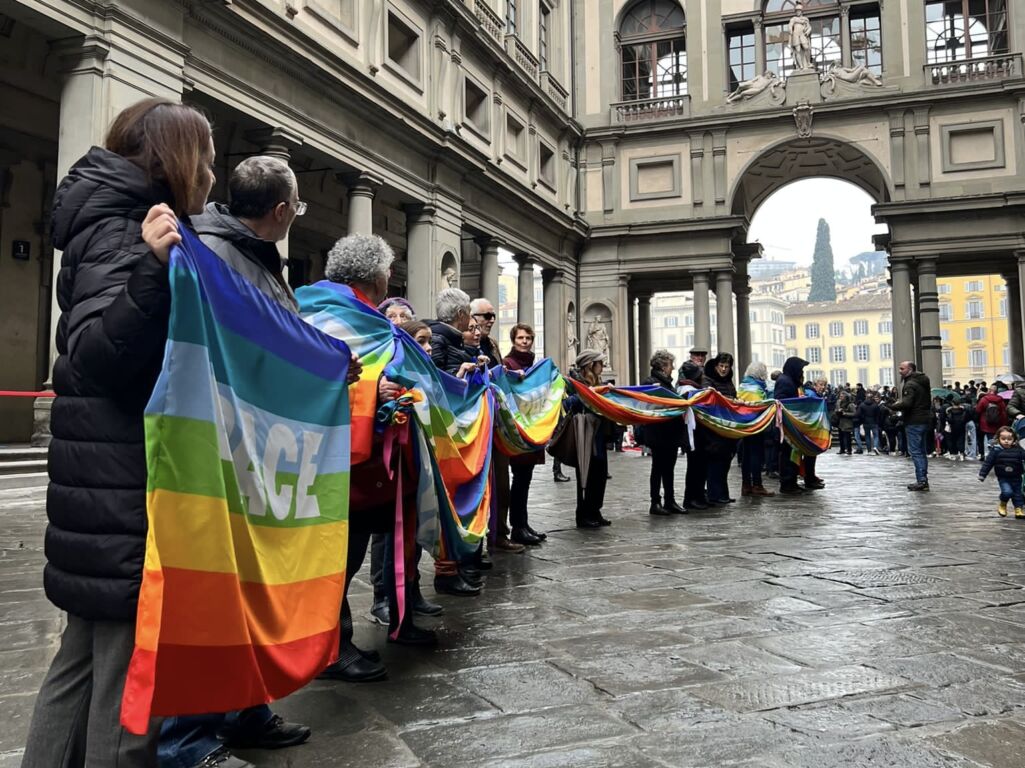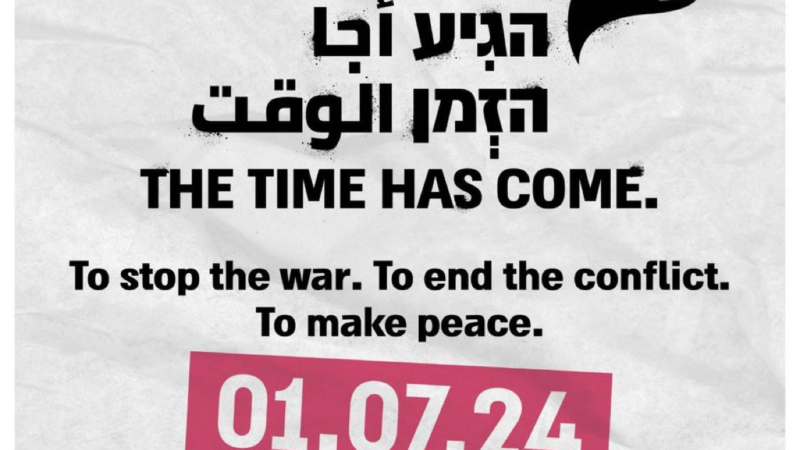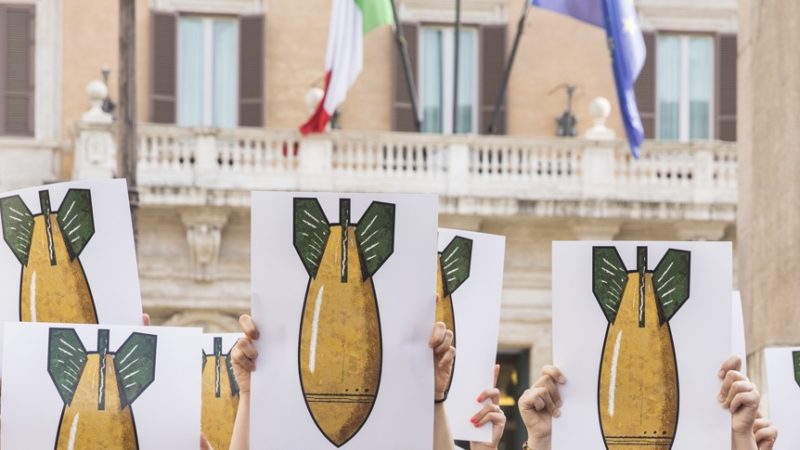How could peace activists help ending the war in Ukraine?

One year into the Russian war in Ukraine, we are faced with two political developments raising the stakes of the conflict and of how to deal with it.
On the one hand, the surprise visit of US President Biden in Kiev clearly shows that the US now is fully and openly an actor in this war; together with Russia the main actor. The US is ready to actively escalate this war step by step, or to respond to a Russian escalation. There is no room for a role of the EU, or China, or France, Germany, or Brasil, Turkey. Or the Ukraine. The analysis of former UN diplomat Michael von der Schulenburg during a webinar of the International Peace Bureau on 24 February can be fully shared (watch the first 20 minutes here). There is nothing in the US position which would open a pathway, or at least indicate criteria, for a parallel track of diplomatic activity aiming to bring an end to this war. Despite, the US Chief of Staff, General Mark Milley has declared that “no one can win” this war and that the conflict can only end through negotiation.
The same holds true for the Russian side, but we did know that before. The recent, short meeting between Lavrov and Blinken confirmed the lack of a negotiating dimension; on the Ukraine war there is just no diplomatic initiative. The absence of any militarily meaningful success in the last months from either side makes the lack of diplomatic efforts all the more worrying. It is pure war. And an entrenched war, with the prospect of dragging along for a long time.
On the other hand, public opinion about how to deal with this war is changing. There is a growing awareness that the war has to be ended. This change is slow, but that a change started is obvious for anyone daring to look beyond the daily newspapers and TV-news, or daring to talk with neighbors. Change is always slow, in the beginning. It is difficult to predict a turning point when its dynamics will introduce in the public debate the urgency of ending the war. At this moment, we might be far from this point. The public debate is structured around three basics arguments which are rock solid. Responsibility: Russia is the aggressor, the Ukraine the victim. Sovereignty: if you allow the violation of borders in this case, there is a threat to your security wherever you live. History: the past tells us that freedom depends on will, and any compromise can easily lead to a further curtailing of freedom. In general, these basic arguments are true, but there are shades of grey at more specific levels of the narration which give a slightly different picture of who is responsible, what constitutes sovereignty and what history tells us. These nuances have the power to open new ways of interpreting reality and how to deal with this war – and that is what we need in order to kickstart a diplomatic track.
At the same time, a fourth basic argument has to be introduced in order to open up the prospect of ending the war. The international order: security is built on political relations based on common security and not on on military power or nuclear deterrence, and this is all the more true in Europe, with its close integration of political, economic and social activities.
The activities of the peace movement in many European states (such Portugal, Spain, UK, France, Belgium, Germany, Italy..) during the first anniversary of the war might have been weaker than we had hoped for. In all countries, the mainstream media had little problems to just negate people were on the streets to ask for a diplomatic solution of the war. Only the biggest of such events, in Berlin, attracted media attention, though only on the grounds that some right-wing activists participated in it. Still, these events have brought in new elements which confirm that public opinion is slowly changing.
In Italy, the decision of the peace movement has been to promote a long week end of mobilizations along all the peninsula, to show how big and large is the movement against the war. The answer was great. More the 120 cities and more than 100.000 people went on the street asking for the cease fire, negotiation and international peace conference. . Sure, in Italy the peace movement is probably the best organized, compared to other Western European countries, given the deep roots particularly of the catholic church and the unions. But that in itself does not explain the story. In the end, in all these cities there must be a handful of people deciding that they want to do something, or better: who feel the desperate urge to do something. And who see a couple of days later, that many other people had the urge to express their opinion in these particular days.
The broad range of peace actions organized in many countries in the framework of the “Europe For Peace network” on the first anniversary of the war tend to share the same urge for ending the conflict. And may show that public opinion is slowly changing. It is now important to anticipate a situation in which a change of attitudes on the war may unfold.
Social movements are born against a certain state of things, but their growth depends on successes. In this case, it will not be the success of one of the belligerent sides, nor could it be a change of the conflict from a military to a non-violent dimension, or the mass desertion of soldiers of both sides. Even stopping weapon delivery to one side would be an inadequate success. The only success that is thinkable is really the start of political diplomacy which can lead to a ceasefire and peace negotiations. But how can the peace movement intervene on such a level, especially if by now Russia and the US are the dominant actors in the political arena ? If, for example, the Italian Government would officially make weapon supply to the Ukraine conditional to entering peace talks, this would be a “success” for the Italian peace movement, but it would not make a real change in the war.
There is more to the question. The peace movement is not just one other social movement. Its “cause” is somewhat closer to the ecological movement. It has to do with survival. It has to do with being radical, at least on some levels of the activity.
The most radical action in this moment could be that the peace movement opens the way to negotiations on a ceasefire and possible diplomatic solutions. We should remember the “Oslo Process”. In the early 1990s Israel and Palestine were in a rampage of violence. At that time peace activists and conflict researchers from Norway started a dialogue which for a long time remained invisible, at a low level of functionaries of both sides. But in a moment of stalemate of the conflict, Oslo became the table of the parties for finding a negotiated solution, which was the best the region ever had.
We follow with great interest and hope the mediation proposal initiated by President Lula, who immediately positioned himself against the war and initiated contacts and meetings with heads of state to build a coalition of states for peace.
It’s time to build peace and common security and all the efforts and roads have to be taken.


